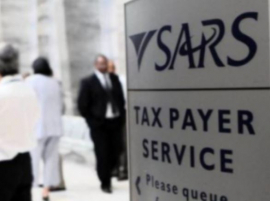The South African Institute of Taxation says taxpayers need to be cautious of possible hacking on online platforms, as they prepare for tax filing season. The process of auto-assessments got underway on Monday, and from 15 July, people can submit their own returns.
The Institute’s Yolisa Dyasi says unprecedented rates of system breaches were recorded in March and April this year.
“Fraudsters are always trying to test the weaknesses in the system and attempt to intercept a lot of the refunds that are rightfully due to taxpayers.”
Dyasi highlighted a trend where hackers exploited taxpayers’ usernames and passwords to intercept returns.
She issued a stern warning for eFiling profiles to be treated with the same secrecy as banking apps.
“You wouldn’t go around sharing passwords and usernames to your banking apps, and therefore the same should not be done with the eFiling system.”
She says hackers use this information as a main point of entry into the system. Adding that taxpayers should be careful of not-so-scrupulous tax practitioners, who have their information.
Meanwhile, Dyasi says SARS is protecting taxpayers information with the use of multi-factor verification on eFiling profiles, using passwords and one-time-pins (OTPs) sent to cellphone numbers or the SARS Mobi App.
Even in doing so, Dyasi says taxpayers should at all costs avoid using the eFiling system on free public WiFi networks.
“SARS has also indicated that tax payers and tax practitioners should perhaps refrain from using public WiFi, as these have been (in the past) identified as some of the entry points for the hacking.”
Individual taxpayers (non-provisional) have until 21 October 2024 to file their returns, while provisional taxpayers have until 20 January 2025.
ALSO READ: SARS tax collection exceeds expectations


